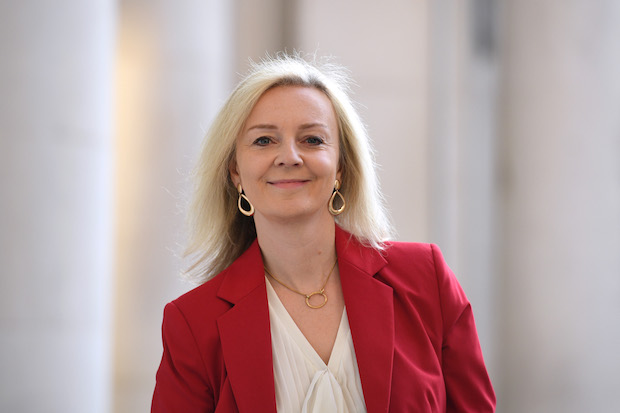Liz Truss has set the cat among the pigeons today with a speech entitled ‘the new fight for fairness’. The minister for women and equalities used it to announce a shift in how the government approaches the equality brief. Rather than a primary focus on gender and race, Truss said that it was important attention was also paid to people’s social class.
In the speech – hosted by the think tank Centre for Policy Studies – the International Trade Secretary said the discussion on equalities had in the past been dominated by ‘fashion’ and a ‘small number of unrepresentative voices’ rather than ‘facts’. Truss said there ought to be a shift in focus from the protected characteristics of certain groups to a focus on the individual and individual character. Linking the equalities agenda to the government’s wider level-up agenda, she said the regional divide was a key focus for her department:
‘There is a deeper wage gap between London and the regions than between men and women, with an average full-time salary a third higher in the capital than the North East of England. There are lower employment rates, pay packets and life expectancy across the North than the South. At the same time, average median hourly earnings in the South West are only just over two thirds of those in London. That is why the equality agenda must be prosecuted with fierce determination and clarity of purpose up and down the country… not just in London boardrooms and Whitehall offices.’
Truss’s words have quickly attracted criticism from leading Labour politicians such as Harriet Harman – who have suggested that poverty ought not be played off against gender or race. However, Truss is unlikely to lose much sleep over it. Her hope, and that of the government, is to try and apply Conservative principles to how the brief is managed – with a focus on empowering the individual. It will also play well to those Tory MPs who have been pushing for a ‘war on woke’ with many citing a need to focus more on underperforming white working-class boys.
Where Theresa May launched a drive to improve workplace equality by calling on more companies to report their gender pay gap and take action to close it, Truss believes these issues can be improved with clearer pay band structures that could benefit women, ethnic minorities and the working class.
But most importantly, today’s reset sees Truss bringing her office’s aim strongly in line with the government’s key domestic agenda: levelling up. While there could be some short-term decisions to show this – with some in the department keen to move its HQ to Leeds – the hope among ministers is by the time of the next election they will be able to point to progress on reducing inequalities between London and the regions. The clock is ticking.







Comments